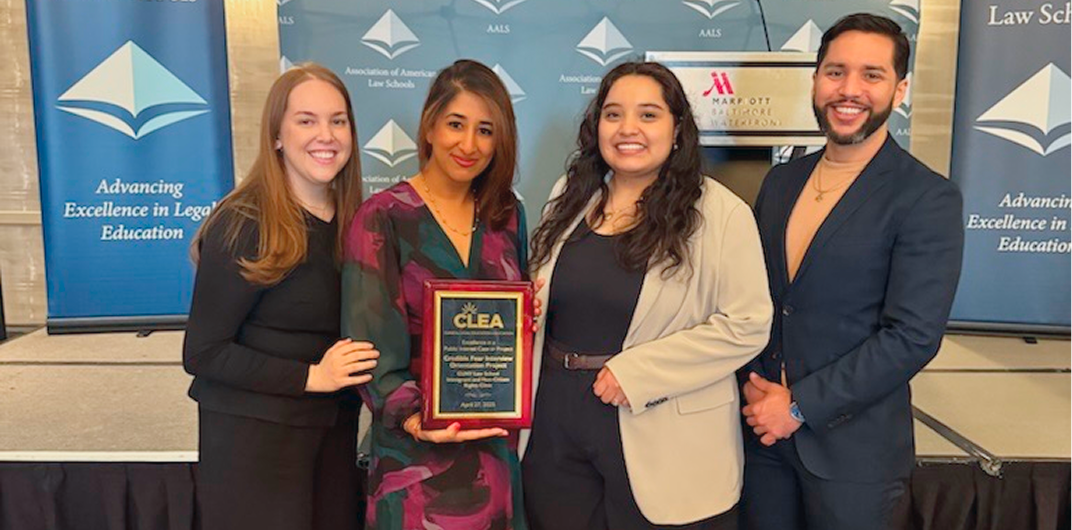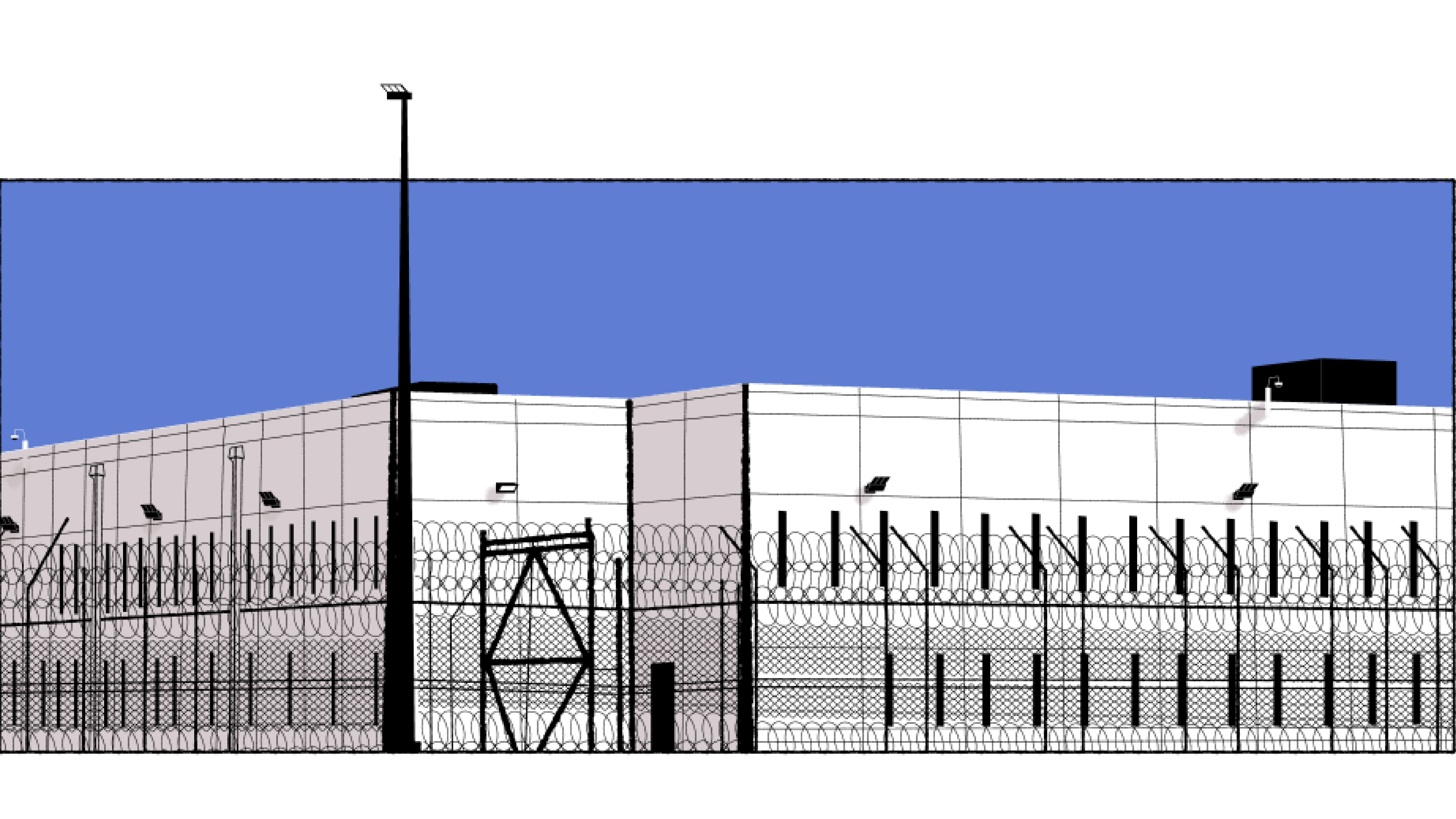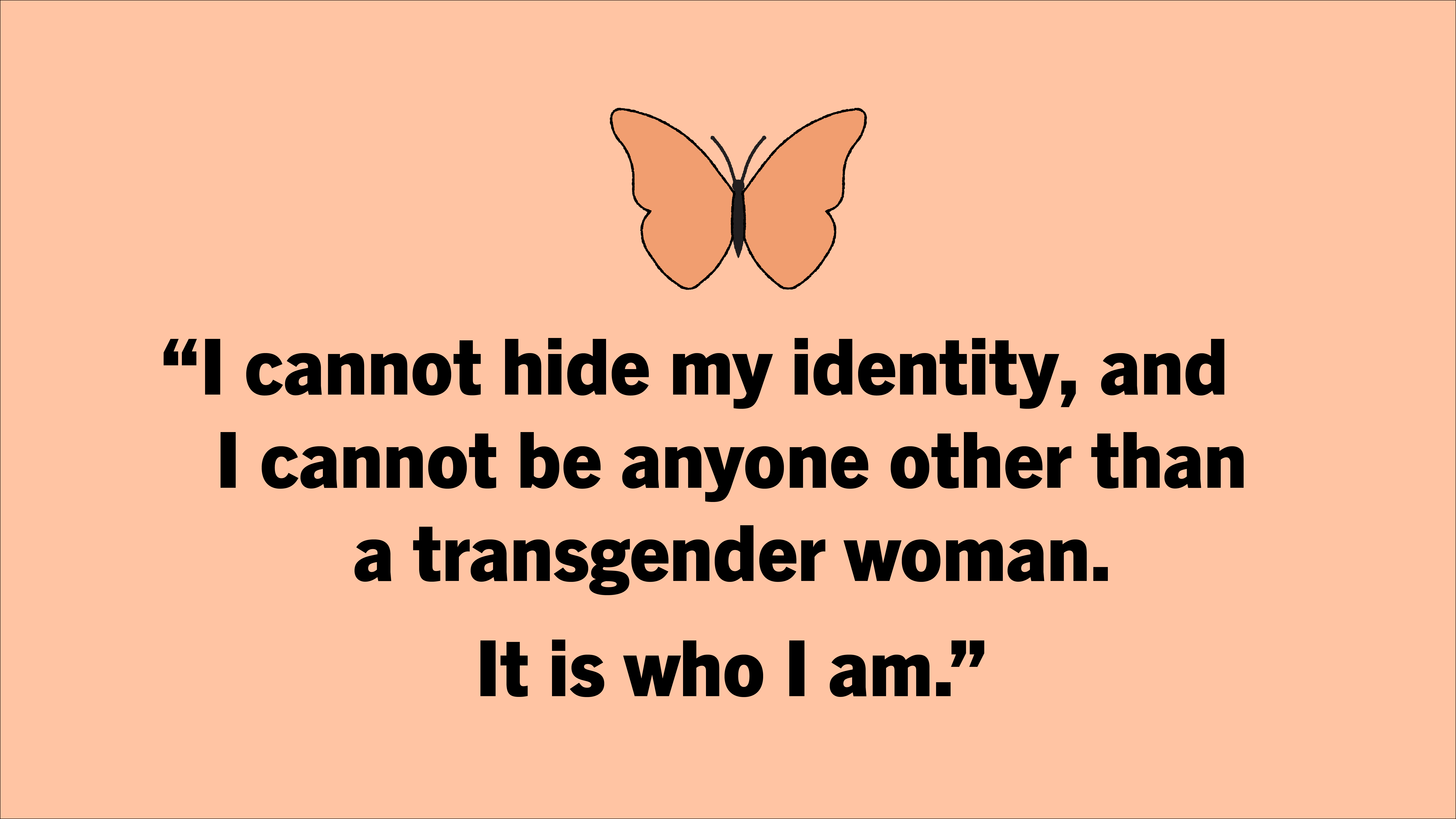Professor Nermeen Arastu wins 2025 CLEA Award for Excellence for pioneering remote advocacy model
Professor Nermeen Arastu, Co-Director of CUNY School of Law’s Immigrant & Non-Citizen Rights Clinic (INRC), has been awarded the 2025 Clinical Legal Education Association (CLEA) Award for Excellence in a Public Interest Case or Project. This award, considered one of the most prestigious honors in clinical legal education, recognizes the outstanding work of Professor Arastu, INRC, students and their key community partners, the Las Americas Immigrant Advocacy Center (LAIAC) and the ACLU of New Mexico (ACLU-NM).
The project, designed and supervised by Professor Arastu, LAIAC, and ACLU-NM tackles one of the most urgent challenges in immigration advocacy: delivering effective legal representation to asylum seekers in remote detention centers facing expedited removal. Using an innovative remote support model, CUNY Law students provided guidance to individuals before their “credible fear” interviews — a pivotal first step in the asylum process that often determines whether someone can pursue their full case or is swiftly deported to a country where they may face serious harm or even death. The CFIO Project tackles the time-sensitive and extremely high-stakes challenge of reaching individuals during the brief window between their apprehension by Immigration and Customs Enforcement (ICE) at or near the border and potential summary deportation.
“The credible fear screening process is often the only chance asylum seekers have to explain—under complex legal standards—why they fear returning to their home countries. This project ensures that asylum seekers have meaningful access to the process by helping them overcome critical barriers—such as language, disability, and medical needs—and creating access to resources and advocacy where almost none existed before.”
— Professor Nermeen Arastu, Co-Director, Immigrant & Non-Citizen Rights Clinic
The CLEA Award specifically recognizes projects that not only deliver critical advocacy to underrepresented communities, but that embody the highest standards of clinical legal education: pedagogical innovation, systemic impact, and the development of justice-oriented legal professionals. INRC’s CFIO Project exemplifies this mission, demonstrating how faculty-driven innovation, strong community partnerships and student advocacy can address urgent humanitarian needs while challenging systemic barriers.
At a moment when global displacement and anti-immigrant policies continue to intensify, CUNY Law’s clinical program stands as a preeminent model for what the future of public interest lawyering must be: bold, creative, and unwavering in its belief that the law must serve people—not power.

Redefining Representation Through Remote Advocacy
“Our students are doing the kind of trauma-informed lawyering and rapid-response legal work that most lawyers don’t experience until years into their careers—and they’re doing it from a place of deep lived understanding of the communities they serve,”
— Professor Talia Peleg ’10, Co-Director, Immigrant & Non-Citizen Rights Clinic
This experience isn’t merely transformative for students—it responds to a critical need. The project responded to thousands of asylum seekers detained in remote facilities without access to meaningful legal support and representation during the decisive stage of the proceedings.
Recognizing this critical gap, Professor Arastu designed the CFIO Project to deliver better access to resources and legal information through an ambitious remote advocacy model. In INRC, students received intensive training to build trust with clients who they would never meet in person, navigate sensitive conversations over unstable WhatsApp connections and detention facility phone lines, and coordinate interpretation across fractured technologies. These are increasingly essential skills in immigration lawyering, especially as clients are routinely transferred to remote detention centers where they are subjected to life-altering interviews and hearings conducted in stressful settings often via telephone or WebEx.
In partnership with LAIAC and ACLU-NM, the clinic established a rapid referral system to reach individuals entering detention centers. Between August 2023 and January 2025, CUNY Law students conducted over 450 hours of remote consultations, connecting with 147 individuals. In 77 cases, students reached individuals before their credible fear interviews—providing vital information about the asylum process, advising them on their rights and responsibilities, and helping them identify their language, medical, and disability accommodation needs.
Zoe Bowman, an attorney at Las Americas, emphasized the exceptional nature of this partnership, “To pull off this project, we needed attorneys who spoke Spanish, who were willing to engage in a popular education model working with asylum seekers, and who had flexible schedules to challenge unjust decisions—and Professor Arastu and her students made that happen.”
The CLEA Award recognizes not only the Project’s technical innovation, but also the INRC and LAIAC’s comprehensive vision: creating new paradigms of advocacy where conventional approaches had failed—and preparing students to lead with creativity, flexibility, intellectual rigor, and compassion as immigration attorneys.
From Individual Support to Systemic Reform
This initiative exemplifies INRC’s comprehensive approach to advocacy. As students gained access to clients inside border detention facilities remotely, they meticulously documented grave human rights violations. These violations range from unsanitary living conditions, violations of medical and disability accommodation policies, to exploitative labor practices. Students used their findings to support broader campaigns for detention reform and facility closure.
Currently, INRC continues to train students to advocate for detained and immigrant communities across CUNY, New York, New Jersey and the Southern Border. Throughout the spring of 2025, students continue to lead Know Your Rights workshops at CUNY Law, Brooklyn College, and other community venues. INRC’s initiative is equipping immigrant communities with essential information about immigration processes and legal protections during this critical time when immigrants are under attack by the federal government.
The CFIO Project exemplifies CUNY Law’s approach to clinical education—one that trains students to develop creative solutions to complex systemic injustices. Rather than accepting the limits of traditional representation models, Professor Arastu and her students crafted a transformative approach that reaches people who would otherwise navigate the complex asylum process alone from thousands of miles away.

The Border: Revisit the Digital Feature on the CFIO Project
Meet the first four students who worked on the project as they take you inside their experience advocating for asylum seekers detained at one of the country’s most notorious detention centers.

From Our Students: Securing Safety for an Asylum Seeker
These words reflect the reality for Ms. X, a Caribbean transgender woman recently represented by INRC students. After months of thorough preparation and a six-hour hearing, students secured a grant of Withholding of Removal—protecting Ms. X from deportation to a country where she faced serious threats.
Hear more from students Parima Kadikar and Divya Mundackal ’25 on their client’s case.

Building Community Power Across CUNY & NYC
INRC’s Know Your Rights community education program provides essential information to immigrant communities and their allies across CUNY and New York City. Students lead workshops at community-based organizations and other CUNY institutions to provide essential education to immigrant communities and allies. You can access their expert guide to materials on one main link, with further details on:
- Resources from trusted experts like the National Immigration Law Center and the Immigrant Defense Project
- Higher Ed Immigration Portal
- Planning with Parents Who Fear Deportation
- Bystander & Observer Guidelines
- Train the Trainer Materials
- Online Detainee Locator & How to Check Your Immigration Court Case
